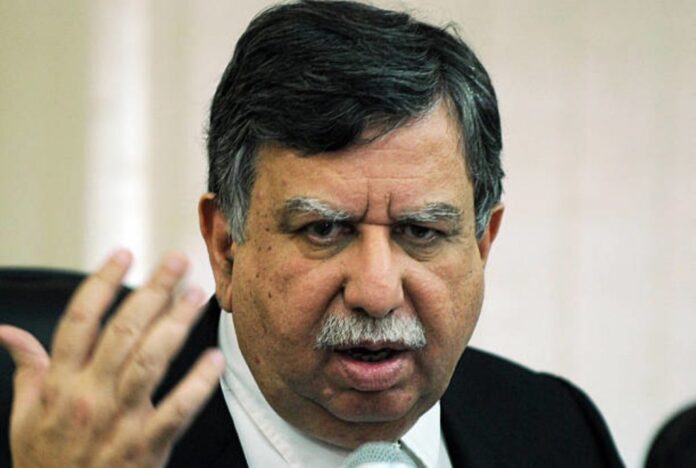Federal Minister for Finance Shaukat Tarin on Sunday the country dealt with Covid-19 situation in a better way and predicted that the growth rate would move to six percent in the next fiscal year.
“Growth rate is projected at five percent this year and would move further upward to six percent during the next fiscal year,” he said while addressing a virtual press conference and added that the government has developed short and long-term plans to achieve the target.
The finance minister stressed the need to pursue sustainable and inclusive economic growth for everyone in Pakistan.
That kind of economic growth could only be achieved when “fundamental fault lines” were corrected, Tarin said, adding that after a “long time”, the government was carrying out a big planning exercise, was focused on it and would act on it.
Tarin proceeded to provide details of the strategy which had been formulated after he took office as finance minister and said that short, medium and long-term planning had been carried out on some 12 sectors and would be presented before the prime minister by the end of the month, which focuses on price stability.
Further, he said that Pakistan’s position had changed from a country with a surplus of food to one with a deficit which had to import, blaming it on the lack of attention paid to the agricultural sector but said that the problem would be addressed this and the problem of price stability by taking administrative measures including, strict action against people engaged in profiteering and hoarding practices and food supply.
“We will tackle this through creation of strategic reserves and dump food wherever people try to profit.”
He said that previously, Pakistan had been following the trickle-down approach to economic growth but now the bottom-up approach would be utilised as well whereas Prime Minister Imran Khan was soon going to take a “major initiative” which would not only focus on the usual areas in the trickle-down approach such as housing, agriculture, industry and exports but would also incorporate the bottom-up approach.
With regards to the financial sector, Tarin said that measures would be taken to encourage people to deposit their money in banks so it could be put to more productive use. He also called for the money collected from the across the country to be spent on the respective provinces instead of “nine cities”.
While responding to a question about power tariffs, he said the government would not increase tariffs to prevent further burden on the people and the same would follow for taxes. He said the International Monetary Fund (IMF) had been told that money would instead be collected through other “innovative ways” and he had “full hope” that the IMF would give space.
He also explained that Pakistan had fulfilled most of the Financial Action Task Force’s conditions with one or two “transactional items” left so he said the government was hopeful of a favourable response in the meeting in June.
























